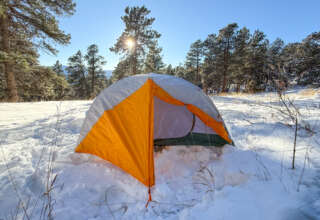Introduction
Hiking, a popular outdoor activity enjoyed by millions, offers a multitude of benefits such as physical exercise, mental rejuvenation, and an opportunity to connect with nature. However, not everyone shares the same enthusiasm for hitting the trails. Kyle, a self-proclaimed hiker-hater, finds himself torn between the allure of the wilderness and his genuine aversion to hiking. In this article, we delve into Kyle’s struggle and explore the reasons behind his reluctance.
1. Aversion to Physical Exertion
For Kyle, the thought of strenuous physical activity is a major deterrent when it comes to hiking. He prefers a more sedentary lifestyle and finds the idea of traversing rugged terrain, enduring long hikes, and dealing with muscle soreness utterly unappealing. The mere thought of climbing steep slopes or walking for hours on end leaves him feeling exhausted.
2. Nature vs. Comfort
While many individuals find solace in the tranquility and beauty of nature, Kyle’s appreciation for the great outdoors is overshadowed by his desire for comfort and convenience. The prospect of sleeping in a tent, braving the elements, and sacrificing modern amenities such as a comfortable bed and hot showers during overnight trips is a deal-breaker for him. He values creature comforts and struggles to find a compromise between his desire to explore nature and his preference for a comfortable lifestyle.
3. Fear of the Unknown
Stepping into the wilderness often involves encountering the unknown. For Kyle, this aspect of hiking triggers a sense of unease and anxiety. The possibility of getting lost, encountering dangerous wildlife, or facing unpredictable weather conditions is enough to dissuade him from embarking on any hiking adventure. His fear of the unknown holds him back, preventing him from fully immersing himself in the world of hiking.
4. Lack of Interest in Nature Observation
One of the fundamental joys of hiking lies in observing and appreciating the natural world. However, Kyle’s lack of interest in nature observation further compounds his reluctance. While others revel in identifying flora and fauna or taking in breathtaking landscapes, Kyle fails to find the same allure. For him, the sensory experiences and beauty of nature are overshadowed by his disinterest, further reducing his motivation to engage in hiking activities.
5. Social Pressure and Expectations
Peer pressure and societal expectations can play a significant role in shaping our preferences and choices. Kyle often finds himself in social circles where hiking is a prevalent pastime. The pressure to conform and participate in outdoor excursions adds an additional layer of discomfort. He feels torn between wanting to fit in and the genuine dislike he harbors towards hiking, making it challenging for him to find a resolution.
6. Seeking Alternative Outdoor Activities
Although Kyle may be a hiker-hater, it does not mean he has no love for the outdoors. It is essential to recognize that alternative outdoor activities can provide similar benefits without the aspects that Kyle finds unappealing. Engaging in activities such as cycling, kayaking, or leisurely nature walks might allow him to experience the beauty of nature in a way that aligns more closely with his interests and comfort level.
Conclusion
Kyle’s reluctance toward hiking stems from a combination of factors, including averse to physical exertion, a conflict between nature and comfort, fear of the unknown, lack of interest in nature observation, and social pressure. While these factors may initially seem insurmountable, understanding and exploring alternative outdoor activities could offer Kyle a pathway to connect with nature on his own terms. Ultimately, it is crucial for individuals like Kyle to find activities that resonate with their personal preferences and allow them to experience the benefits of the great outdoors in a way that brings them joy and fulfillment.














